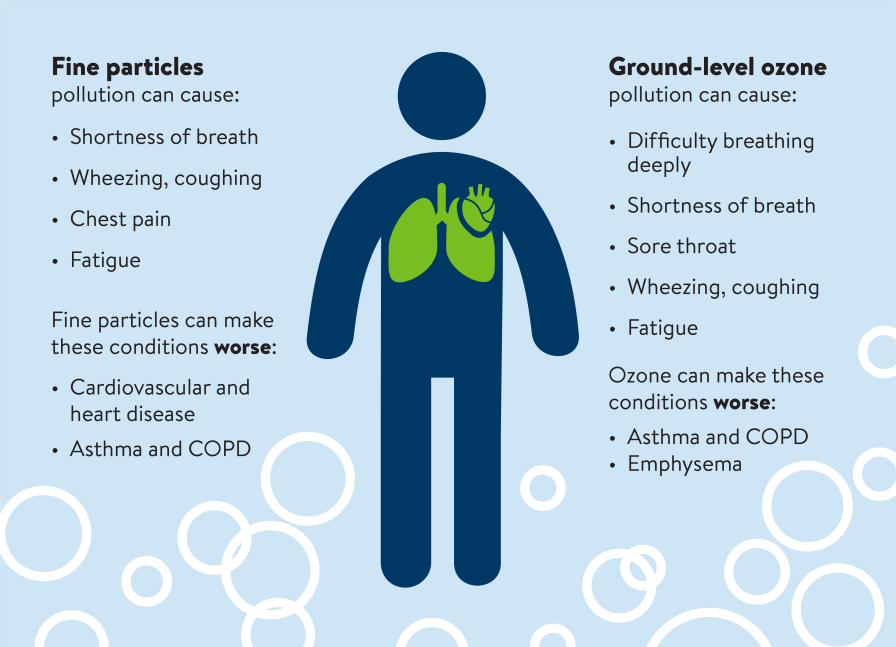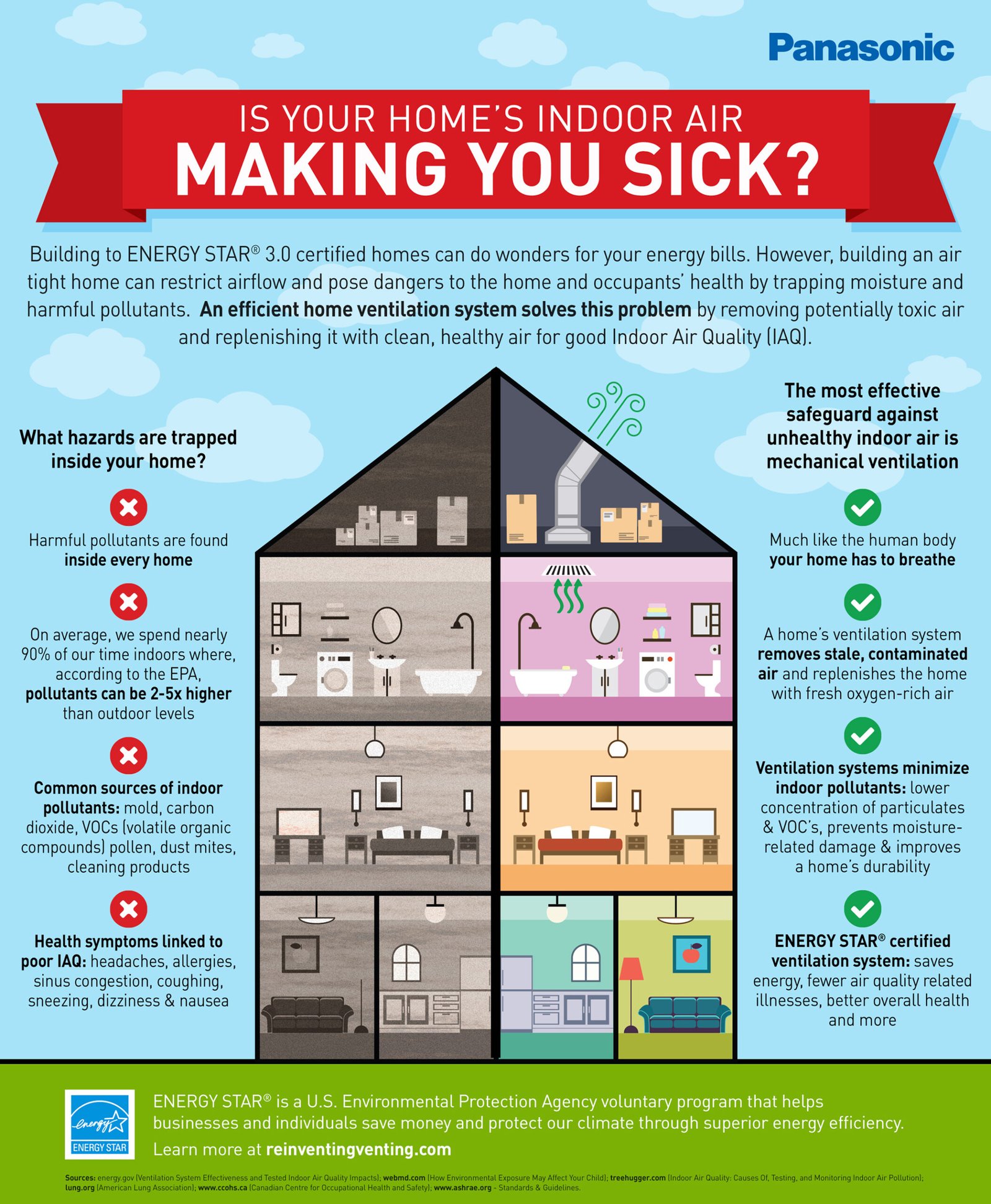Indoor air quality can indeed make you sick. Poor indoor air quality may cause allergies, headaches, and fatigue due to pollutants present in the air.
Not only can it lead to respiratory problems and irritations, but it can also result in high energy bills and unpleasant odors. Understanding the symptoms of poor indoor air quality is crucial in maintaining a healthy living environment. Moreover, long-term exposure to indoor air pollution can have severe consequences on your health, including respiratory diseases, heart problems, cognitive deficits, and even cancer.
Taking steps to improve indoor air quality is essential for your overall well-being.
The Impact Of Indoor Air Quality On Health
Indoor air quality can impact health in various ways. Immediate symptoms may include fatigue, dizziness, headaches, and irritation of eyes, nose, or throat. These symptoms mimic cold or allergies. Long-term exposure to poor indoor air quality can lead to respiratory diseases, heart issues, cognitive deficits, and even cancer. It can also cause flu-like symptoms such as itchy eyes, runny nose, coughing, and fatigue. Bioaerosols in the air can spread diseases and allergies. Overall, maintaining good indoor air quality is crucial for overall well-being.

Credit: www.okheatingandair.com
Common Symptoms Of Poor Indoor Air Quality
Allergies, irritations, and respiratory problems are common symptoms of poor indoor air quality. Other signs include headaches, insomnia, excessive dust accumulation, high energy bills, unpleasant odors, high humidity levels, and condensation on glass surfaces.
- Allergies, Irritations, or Respiratory Problems: Symptoms can include eye, nose, or throat irritation.
- Headaches: Frequent headaches can be a result of poor indoor air quality.
- Insomnia and Fatigue: Feeling tired or dizzy may indicate air quality issues.
- Excessive Dust Accumulation: Dust buildup can signal poor indoor air quality.
- High Energy Bills: A spike in energy bills might be linked to air quality problems.
- Unpleasant Odors: Foul smells can be a sign of unhealthy indoor air.
- High Humidity Levels: Excessive humidity can impact indoor air quality.
- Condensation on Glass Surfaces: Condensation may indicate poor ventilation or air quality issues.
Health Consequences Of Unhealthy Indoor Air
Both short- and long-term exposure to indoor air pollution can cause a range of health issues. Respiratory diseases are one of the main consequences of unhealthy indoor air. These diseases can range from mild conditions such as coughing and wheezing to more severe conditions like asthma and chronic obstructive pulmonary disease (COPD).
Another consequence of unhealthy indoor air is an increased risk of heart disease. Exposure to pollutants such as secondhand smoke, particulate matter, and volatile organic compounds (VOCs) can contribute to the development or worsening of cardiovascular conditions.
Poor indoor air quality can also have cognitive deficits on individuals. Studies have shown that exposure to air pollutants can lead to impaired cognitive function, decreased productivity, and even neurological disorders such as Alzheimer’s disease.
Furthermore, cancer is another serious health consequence of unhealthy indoor air. Certain chemicals and pollutants found in indoor environments, such as radon and asbestos, have been linked to an increased risk of developing lung cancer and other types of cancer.
Overall, maintaining good indoor air quality is essential for protecting our health and well-being. Regularly ventilating our homes, using air purifiers, and reducing exposure to pollutants can help prevent these health consequences.
Indoor Air Pollutants And Their Effects
Indoor air pollutants can have serious effects on your health. Infections can be caused by bioaerosols released into the air, leading to diseases such as Legionnaires’ disease. Lung cancer and chronic lung diseases are also associated with exposure to indoor air pollution. Short-term symptoms may include fatigue, dizziness, headaches, and respiratory irritation. Long-term exposure can lead to respiratory diseases, heart disease, cognitive deficits, and cancer. It’s crucial to be aware of the potential consequences of unhealthy indoor air and take steps to improve air quality in your home.
Preventing And Improving Indoor Air Quality
Can Indoor Air Quality Make You Sick? Poor indoor air quality can cause a range of health issues, including respiratory diseases, heart disease, cognitive deficits, and cancer. Preventing and Improving Indoor Air Quality involves proper ventilation, regular cleaning and maintenance, reducing chemical use, using air purifiers, and monitoring indoor air quality. Proper ventilation helps in distributing bioaerosols released into the air and reducing infectious diseases and allergic reactions. Regular cleaning and maintenance reduce the accumulation of dust, while reducing chemical use minimizes the exposure to harmful chemicals. Air purifiers help in removing pollutants and allergens from the air, improving indoor air quality. Monitoring indoor air quality is essential to detect any potential issues and take corrective measures to maintain a healthy indoor environment.

Credit: www.npr.org

Credit: www.pca.state.mn.us
Frequently Asked Questions Of Can Indoor Air Quality Make You Sick?
What Are The Symptoms Of Poor Indoor Air Quality?
Symptoms of poor indoor air quality include allergies, headaches, fatigue, excessive dust, high energy bills, and unpleasant odors.
Is The Air Quality In My House Making Me Sick?
Poor indoor air quality can cause cold-like symptoms such as fatigue, dizziness, headaches, and eye, nose, or throat irritation.
What Are The Consequences Of Unhealthy Indoor Air?
Short answer: Unhealthy indoor air can lead to respiratory diseases, heart disease, cognitive deficits, and cancer due to short- and long-term exposure to indoor air pollution. Other consequences include allergies, irritations, fatigue, headaches, excessive dust, high energy bills, unpleasant odors, and condensation.
Can Indoor Air Pollution Cause Flu Like Symptoms?
Yes, poor indoor air quality can cause flu-like symptoms such as itchy eyes, runny nose, sneezing, coughing, dizziness, and fatigue.
Conclusion
Poor indoor air quality can indeed make you sick. The symptoms can range from allergies and respiratory problems to headaches and fatigue. Long-term exposure to indoor air pollution can even lead to more serious health conditions such as heart disease and cancer.
It is important to prioritize the air quality in your home and take measures to improve it, such as proper ventilation and regular cleaning. Don’t underestimate the impact of indoor air quality on your health.
Rakib Sarwar is a Registered Pharmacist and a reputed health and wellness blogger. He has a great interest in Air purifiers.
